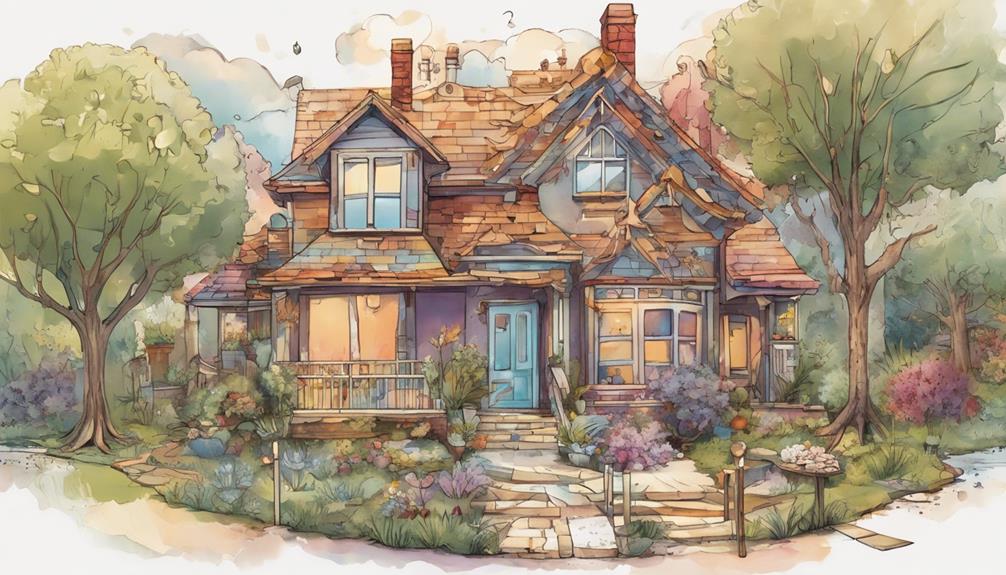The struggles of Divorce can be emotionally draining and challenging. It shakes the foundation of our lives, leaving us feeling lost and broken. The emotional toll can be overwhelming, casting doubt on our strength to heal.
But amidst the heartbreak and despair, there is hope. There is strength within us waiting to be unleashed. And sometimes, it comes in the form of words – powerful, inspiring words that resonate with our souls and remind us of our resilience.
These empowering coping with divorce quotes are more than mere words. They are rays of light that pierce through the darkness, offering solace and strength as we navigate through the stormy seas of divorce.
These quotes serve as reminders that divorce is not the end, but rather a chance to start anew. They teach us valuable lessons about ourselves, about love, and about life. They are a balm for our wounded hearts, gently guiding us towards healing.
Let these words be a source of inspiration and encouragement as you embark on your journey of healing. Let them be a reminder that you are not alone – that countless others have walked this path and emerged stronger, wiser, and happier.
Key Takeaways:
- Coping with divorce can be challenging and painful.
- Empowering quotes can provide solace and strength during this difficult time.
- Divorce is an opportunity for growth and learning.
- Inspiring quotes remind us that we are not alone in our struggles.
- Healing is possible, and we have the strength within us to overcome.
Jennifer Weiner’s Perspective on Divorce
In her novel Fly Away Home, Jennifer Weiner shares a powerful insight that reframes divorce. She reminds us that divorce isn’t a tragedy; instead, a tragedy is staying in an unhappy marriage and teaching our children the wrong lessons about love. Jennifer Weiner’s quote emphasizes the importance of putting our well-being and the well-being of our children first, even if it means going through the difficult process of divorce.
“Divorce isn’t such a tragedy. A tragedy is staying in an unhappy marriage, teaching your children the wrong things about love. Nobody ever died of divorce.”
Divorce can be a challenging and emotional experience, but Jennifer Weiner’s perspective encourages individuals to prioritize their own happiness and growth. By acknowledging that divorce can be a positive step towards a healthier life, it allows individuals to let go of societal stigmas and focus on creating a better future for themselves and their children.
Understanding the impact of divorce on children is crucial, and Jennifer Weiner’s quote highlights the importance of teaching them about love in healthy and positive ways. By ending an unhappy marriage, parents have the opportunity to demonstrate to their children the value of setting boundaries, prioritizing self-care, and seeking happiness.
Finding Strength in Rock Bottom – J.K. Rowling’s Perspective
J.K. Rowling, the author of the beloved Harry Potter series, offers a powerful quote in her book, Very Good Lives: The Fringe Benefits of Failure and the Importance of Imagination. She writes about experiencing rock bottom and how it became the solid foundation on which she rebuilt her life. This quote reminds us that even in the darkest moments of divorce, there is an opportunity for transformation and growth.
“Rock bottom became the solid foundation on which I rebuilt my life.” – J.K. Rowling
Divorce can leave us feeling as though we have hit rock bottom, but J.K. Rowling’s perspective reminds us that it is precisely in these moments of darkness that we have the chance to rebuild, to emerge stronger and wiser. When everything seems to crumble around us, we have the opportunity to lay a new foundation and create a life that aligns with our true selves.
In divorce, it is common to feel lost, unsure of what the future holds. However, J.K. Rowling’s quote serves as a beacon of hope, reminding us that rock bottom is not the end but rather the beginning of a new chapter. It is the catalyst for personal growth, resilience, and the discovery of our own inner strength.

Rupi Kaur’s Advice on Healing
Rupi Kaur, a renowned poet, offers a poignant perspective on healing in her book Milk and Honey. She advises us not to seek healing from those who broke us. This quote serves as a reminder that we should seek support and healing from sources that uplift and empower us, rather than those who contributed to our pain.
The Importance of Finding Healing After Divorce
Divorce can be an incredibly challenging and heart-wrenching experience. The end of a marriage brings with it a multitude of emotions and a sense of loss that is difficult to put into words. However, it is crucial to acknowledge and prioritize the journey of healing in order to move forward and create a fulfilling life.
While healing is a deeply personal and unique process for everyone, there are guiding principles that can help individuals in their quest for healing after divorce. Rupi Kaur’s advice serves as a poignant reminder of the importance of seeking healing from the right sources.
“Do not look for healing where you lost it.”
This quote encapsulates the need to find healing from external sources that promote growth, self-love, and empowerment. It urges individuals to refrain from seeking healing from those who caused their pain, as relying on them may hinder the healing process.
In the context of divorce, seeking healing from a former spouse, who may still be carrying their own emotional baggage, can prove to be a hindrance rather than a source of solace. Instead, it is essential to surround oneself with support systems that uplift and empower, be it a close circle of family and friends, therapy, or engaging in self-care practices.
Healing after divorce requires nurturing one’s physical, emotional, and mental well-being. It involves introspection, reflection, and taking proactive steps towards self-improvement. It also requires embracing the pain and using it as a catalyst for personal growth.
By accepting the advice of Rupi Kaur, individuals can empower themselves to find healing after divorce in healthier and more fulfilling ways. This quote serves as a reminder that true healing comes from within and from external sources that support and uplift during the turbulent period following the end of a marriage.

Jonathan Franzen’s Insight on Love
Jonathan Franzen, the acclaimed author of Freedom, offers a thought-provoking perspective on love. He challenges conventional notions of falling in love by suggesting that it doesn’t always happen between “nice” people. This quote encourages us to be open-minded and accepting of the complexities of relationships, even when they ultimately end in divorce.
“Falling in love is a sign of mutual compatibility, not a validation of goodness or worth. People we build relationships with may not always fit the mold of what society considers ‘nice,’ but that doesn’t detract from their capacity to love.”
This quote prompts us to question society’s expectations and judgments surrounding love. It urges us to recognize that love can emerge between individuals who don’t conform to conventional ideas of niceness. By embracing this perspective, we can gain a deeper understanding of the multifaceted nature of love and navigate the complexities of relationships with greater empathy and acceptance.
| Key Points | Explanation |
|---|---|
| Falling in love | Doesn’t always happen between “nice” people. |
| Validation of goodness | Love is a sign of mutual compatibility, not a measure of one’s worth or morality. |
| Society’s expectations | Challenge conventional ideas about love and embrace the complexities of relationships. |

Accepting Love’s Complexity
Franzen’s insight encourages us to develop a broader perspective on love and relationships. It reminds us that love can exist beyond societal norms and preconceived notions. By embracing this complexity, we can approach relationships with an open heart, free from judgment and unrealistic expectations.
Jennifer Aniston’s Perspective on Pain and Healing
Jennifer Aniston, known for her roles in Friends and various movies, shares her experience with pain and healing after her divorce from Brad Pitt.
Divorce is undoubtedly a difficult and painful experience, filled with sadness and heartache. Jennifer’s journey through the pain of divorce serves as a relatable reminder that healing is a necessary and transformative process.
“Allow yourself to feel the pain, embrace it, and let it wash over you. It’s through this process that true healing can begin.”
In her statement, Jennifer encourages individuals going through divorce to confront and acknowledge their pain rather than suppressing it. By allowing ourselves to fully experience and process the emotions that come with divorce, we can embark on a path of healing and self-discovery.
The journey of healing after divorce is unique to each individual, and Jennifer’s perspective offers a guiding light for those navigating their own pain. It reminds us that healing is not a linear process, but rather a series of ups and downs, breakthroughs and setbacks.
By accepting the pain and embracing it, we are able to confront our emotions head-on and work through them. This process ultimately leads to personal growth, resilience, and the possibility of a brighter future.

The Importance of Emotional Healing
Divorce is often associated with a range of emotions, including anger, grief, and betrayal. For many, it can feel overwhelming and impossible to move forward. However, Jennifer’s perspective on pain and healing emphasizes the importance of emotional well-being during this challenging time.
By allowing ourselves to process the pain and heal emotionally, we can begin to rebuild our lives in a healthy and positive way. It is through this healing process that we can gain a deeper understanding of ourselves, our needs, and our desires for the future.
Seeking Support and Self-Care
While healing after divorce is ultimately a personal journey, it’s essential to seek support from friends, family, and professionals who can provide guidance and empathy.
In addition to seeking support, self-care is a crucial aspect of the healing process. Taking time for oneself, engaging in activities that bring joy and relaxation, and prioritizing emotional well-being are all essential steps toward healing after divorce.
| Key Steps for Healing After Divorce |
|---|
| 1. Allow yourself to feel and process the pain. |
| 2. Seek support from loved ones and professionals. |
| 3. Practice self-care and prioritize emotional well-being. |
| 4. Embrace personal growth and self-discovery. |
| 5. Keep an open mind and be patient with the healing process. |
By following these key steps and embracing Jennifer Aniston’s perspective on pain and healing, individuals can embark on a journey of self-discovery, growth, and healing after divorce. Remember, healing takes time, but with patience and self-compassion, a brighter future awaits.
Mitch Albom’s Reflection on Divorce
Mitch Albom, a renowned author, offers a profound reflection on the impact of divorce in his book For One More Day. He provides a unique perspective on the origin of the word “divorce” and how it diverts us from the life we had envisioned. According to Albom, divorce should be seen as a redirection rather than a tragedy, presenting us with unexpected opportunities and a new path in life.
“Divorce isn’t such a tragedy. A tragedy is staying in an unhappy marriage, teaching your children the wrong things about love. Nobody ever died of divorce.”
Albom’s thought-provoking quote challenges the common belief that divorce is inherently negative. It prompts us to consider the impact of staying in an unhappy relationship and the lessons we impart to our children. Divorce, in Albom’s perspective, becomes an opportunity for personal growth and setting a better example of love.

Impact of Divorce on Individuals
| No. | Effects of Divorce |
|---|---|
| 1 | Emotional turmoil and grief |
| 2 | Changes in lifestyle and routines |
| 3 | Financial challenges and adjustments |
| 4 | Shifting social dynamics and support systems |
| 5 | Opportunity for self-reflection and personal growth |
This table highlights some of the common impacts of divorce on individuals. While divorce may bring emotional turmoil and significant changes, it also presents an opportunity for self-reflection, personal growth, and the chance to redefine one’s life path.
Dr. Laura Schlessinger’s Advice on Moving Forward
In The Graduate’s Book of Practical Wisdom: 99 Lessons They Can’t Teach in School, Dr. Laura Schlessinger provides valuable advice on moving forward after divorce. She urges us not to waste time beating on a wall, hoping it will transform into a door. This quote encourages us to embrace change and seek new opportunities instead of dwelling on the past.

| Benefits of “Turning a Wall into a Door” | Consequences of Dwelling on the Past |
|---|---|
|
|
Jennifer Lopez’s Perspective on Divorce Pain
Jennifer Lopez, a prominent singer and actress, openly discusses the pain and failure that often accompany divorce. She recognizes the significant emotional toll that divorce can take on individuals, acknowledging that it is a challenging and difficult experience. Jennifer Lopez’s perspective on divorce pain highlights the importance of facing and processing the pain as part of the healing journey.
“Divorce is not the end of your journey; it’s just the beginning of a new chapter. Allow yourself to feel the pain, grieve, and then rise stronger than before. You have the strength within you to overcome this obstacle and find happiness once again.”
Divorce pain is a natural and valid part of the healing process, and it should not be suppressed or ignored. By acknowledging and processing the pain, individuals can begin to work through the emotional turmoil and gradually rebuild their lives. Jennifer Lopez’s perspective serves as a powerful reminder that overcoming divorce requires inner strength, resilience, and the willingness to embrace a new beginning.
The journey towards healing after divorce may involve seeking support from loved ones, therapy, or engaging in self-care activities. It is essential to surround oneself with positive influences and focus on personal growth and well-being. Overcoming divorce pain is a gradual process, and each individual’s healing journey is unique.
Next, let’s explore inspiring insights from other notable individuals who have shared their perspectives on divorce, offering valuable wisdom and guidance for those navigating the challenges of separation.
Suzanne Finnamore’s Insight on Marriage and Divorce
Suzanne Finnamore, the author of Split: A Memoir of Divorce, offers a reflective quote on the worth of marriage and divorce. She suggests that the challenges and struggles of marriage may outweigh the benefits, making divorce a more desirable option. Suzanne Finnamore’s quote invites us to reconsider the traditional narrative surrounding marriage and divorce and embrace the idea that sometimes divorce is the best choice for personal growth and well-being.
Conclusion
Divorce can be an incredibly challenging and overwhelming experience, but it is important to remember that healing and growth are possible in the aftermath. These inspiring quotes for divorce serve as a source of solace and strength during this difficult time. From Jennifer Weiner’s perspective on teaching children about love to Suzanne Finnamore’s insight on the worth of divorce, these quotes offer valuable lessons and encouragement.
Remember that you are not alone in this journey. Take inspiration from these quotes and embrace the healing process. It may be a long and winding road, but there is hope for a brighter future. Allow yourself the space and time to grieve, reflect, and learn from the experience. By doing so, you can emerge stronger and more resilient.
You have the strength within you to cope with divorce and heal. Surround yourself with a support system of friends, family, and professionals who can guide you through this challenging time. Take care of yourself physically, emotionally, and mentally. Practice self-compassion and self-care as you embark on the path of healing after divorce.
Remember, divorce is not the end; it is a new beginning. Use the inspiration from these quotes to fuel your journey towards personal growth, self-discovery, and a life filled with joy and fulfillment. You have the power to overcome the challenges and create a future that is true to who you are. Embrace the resilience within you and let it guide you on your path to healing.
How can Divorce Quotes Help with Healing, Similar to the Message in the Children of Divorce Lyrics?
Divorce quotes can offer solace and understanding, much like the poignant message in Jonny Craig’s divorce lyrics. Both remind the divorced of their pain’s universality. “Children of Divorce” lyrics, for example, convey raw emotion and may serve as a source of comfort and healing during such a difficult time.
FAQ
What are coping with divorce quotes?
Coping with divorce quotes are powerful and inspiring phrases that offer solace, strength, and guidance to individuals going through the challenging experience of divorce. These quotes provide comfort and encouragement, reminding us that there is hope for healing and growth after a divorce.
How can coping with divorce quotes help in healing after divorce?
Coping with divorce quotes serve as a source of inspiration and encouragement during the healing process. They remind individuals that divorce is not the end, but an opportunity for personal growth and discovery. These quotes provide comfort, validation, and strength, helping individuals navigate through the pain and uncertainty, ultimately leading to healing and a brighter future.
Where can I find coping with divorce quotes?
Coping with divorce quotes can be found in various sources such as books, articles, online platforms, and social media. Many renowned authors, poets, celebrities, and individuals who have experienced divorce themselves have shared their insights and words of wisdom on the subject. You can search online or visit libraries and bookstores to find books specifically focused on coping with divorce.
Who is Jennifer Weiner and what is her perspective on divorce?
Jennifer Weiner is a renowned author and her perspective on divorce is shared in her novel Fly Away Home. She reframes divorce as not being a tragedy, but staying in an unhappy marriage and teaching our children the wrong lessons about love. Jennifer Weiner emphasizes the importance of prioritizing our well-being and the well-being of our children, even if it means going through the difficult process of divorce.
What is J.K. Rowling’s perspective on finding strength in rock bottom?
J.K. Rowling, the beloved author of the Harry Potter series, offers a powerful perspective on finding strength in rock bottom. She highlights in her book, Very Good Lives: The Fringe Benefits of Failure and the Importance of Imagination, that rock bottom became the solid foundation on which she rebuilt her life. This quote reminds us that even in the darkest moments of divorce, there is an opportunity for transformation, growth, and rebuilding a better life.
What is Rupi Kaur’s advice on healing after divorce?
Rupi Kaur, a renowned poet, offers a poignant perspective on healing in her book Milk and Honey. She advises individuals not to seek healing from those who broke them. This powerful quote encourages us to seek support and healing from sources that uplift and empower us, rather than those who contributed to our pain during the divorce.
What is Jonathan Franzen’s insight on love?
Jonathan Franzen, the author of Freedom, offers a thought-provoking quote about love. He suggests that falling in love doesn’t always happen between “nice” people. This quote challenges conventional notions of love and encourages us to be open-minded and accepting of the complexities of relationships, even when they end in divorce.
How does Jennifer Aniston perceive pain and healing after divorce?
Jennifer Aniston, known for her roles in Friends and various movies, shares her experience with pain and healing after her divorce from Brad Pitt. She acknowledges the sadness and pain that come with the end of a relationship but highlights the importance of allowing ourselves to feel and process the pain as a necessary step towards healing.
What is Mitch Albom’s reflection on the impact of divorce?
Mitch Albom, a renowned author, reflects on the impact of divorce in his book For One More Day. He shares an interesting perspective on the origin of the word “divorce” and how it diverts us from the life we had envisioned. Mitch Albom’s quote encourages us to accept divorce as a redirection rather than a tragedy, reminding us that it can lead us to unexpected opportunities and a new path in life.
What advice does Dr. Laura Schlessinger provide on moving forward after divorce?
Dr. Laura Schlessinger, in her book The Graduate’s Book of Practical Wisdom: 99 Lessons They Can’t Teach in School, provides valuable advice on moving forward after divorce. She urges individuals not to waste time beating on a wall, hoping it will transform into a door. This quote encourages us to embrace change and seek new opportunities instead of dwelling on the past.
How does Jennifer Lopez perceive the pain associated with divorce?
Jennifer Lopez, a prominent singer and actress, speaks openly about the pain and failure associated with divorce. Her quote acknowledges the significant emotional toll that divorce can take on individuals. It emphasizes the importance of recognizing and processing the pain as part of the healing journey.
What is Suzanne Finnamore’s insight on marriage and divorce?
Suzanne Finnamore, the author of Split: A Memoir of Divorce, offers a reflective quote on the worth of marriage and divorce. She suggests that the challenges and struggles of marriage may outweigh the benefits, making divorce a more desirable option. Suzanne Finnamore’s quote invites us to reconsider the traditional narrative surrounding marriage and divorce and embrace the idea that sometimes divorce is the best choice for personal growth and well-being.










